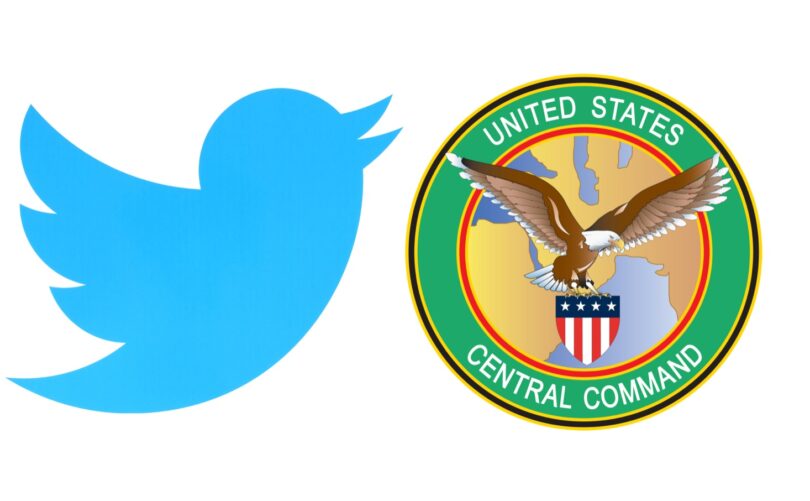Eli Clifton
Emails from the so-called “Twitter Files” — internal communications shared with Lee Fang at The Intercept as well as other journalists following Elon Musk’s purchase of the social media platform — reveal that the company had knowledge of a U.S. military-linked information operation and did not publicly acknowledge the operation or provide transparency to the general public after the operation was discovered.
That appears to be a clear violation of Twitter’s principles about state-backed information operations as laid out by Twitter’s former head of trust and safety Yoel Roth in 2019. Indeed, Twitter made a point of disclosing the details of accounts, and the content of their tweets, when they were identified as part of government linked information operations, beginning in 2018.
Roth wrote, in a statement of principles that is still published on Twitter’s website:
We believe Twitter has a responsibility to protect the integrity of the public conversation — including through the timely disclosure of information about attempts to manipulate Twitter to influence elections and other civic conversations by foreign or domestic state-backed entities. We believe the public and research community are better informed by transparency.
Fang, in his article published on Tuesday, details how Twitter “whitelisted” — a function that provided accounts with invulnerability to Twitter’s detection mechanisms that might decrease visibility for accounts engaged in spam or abuse — a list of accounts provided by U.S. Central Command in 2017. The accounts engaged in activities including: touting the accuracy of drone strikes in Yemen, promoting U.S. backed militias in Syria, and spreading anti-Iran messages in Iraq.
An official working at CENTCOM promised that the accounts would be labeled as “USG-attributed, Arabic-language accounts tweeting on relevant security issues,” but many of the accounts subsequently deleted these disclosures and concealed their affiliation with the U.S. government after Twitter granted them the special status.
Over the years, some of these accounts have been deleted while others, such as this one, according to Fa-ng, continue to operate w-ithout any disclosure of the-ir U.S. government affiliation.
Fang, citing internal Twitter emails, found multiple instances in which Twitter senior executives appear to have been aware that the government linked accounts were still operational and, in at least some cases, acting in violation of the company’s rules on platform manipulation.
Any further uncertainty, as well as concerns about potential embarrassment from a U.S. government linked information operation on Twitter, should have come to a head last August when the Stanford Internet Observatory published a report showing strong evidence that CENTCOM was involved in the creation and operation of a series of undisclosed government-linked accounts. “…[E]mails obtained by The Intercept show that the creation of at least one of these accounts was directly affiliated with the Pentagon,” reports Fang.
But even after the SIO report made a splash in the media, Twitter never disclosed the CENTCOM-led information operation on its page dedicated to disclosing state-linked information operations on the social media platform. For that matter, while highlighting state-linked information operations from Russia, Iran, Bangladesh, Venezu-ela, Spain, China, United Arab Emirates, Egypt, Sa-udi Arabia, Ecuador, Gha-na, Nigeria, Serbia, Hond-uras, Indonesia, Turkey, Thailand, Cuba, Armenia, and Tanzania, no U.S. government linked information operations have been publicly disclosed by Twitter.
Roth, the former head of trust and safety, did not respond to questions about why the U.S. government linked accounts were never publicly disclosed, even after researchers from Stanford appear to have outed at least one of the accounts that Twitter knew was an undisclosed CENTCOM linked account.
Ray Serrato, a former m-ember of Twitter’s safety and integrity team, told R-esponsible Statecraft that “this activity was disclosed to research partners — such as SIO and Graphika, wh-ose research was covered by the media, under the criteria set out in public blog post here,” providing a link to a blog post explaining h-ow outside researchers we-re provided datasets including “platform manipulation campaigns originating from the Americas, Asia, Asia Pacific (APAC), Europe, the Middle East and North Africa (EMEA), and Sub-Saharan Africa (SSA).”
Serrato did not respond to questions about why Twitter, despite disclosing data about “this activity” to research partners, did not add the CENTCOM linked accounts to Twitter’s list of disclosed state-linked information operations.
Twitter, under Musk’s new ownership, doesn’t seem to have taken any more meaningful steps to address the U.S. government linked platform manipulation. No U.S. government linked operation has been added to Twitter’s list of government sponsored influence operations and, as Fang noted, at least one of the accounts linked to CENTCOM, while providing no disclosure of its U.S. government ties, is still active. Oddly, the new management appears to be following the pattern set by previous executives: sharing information about the influence operation with outside sources but not officially acknowledging the U.S. government led influence operation, taking steps to shut it down, or disclosing the extent or substance of the platform manipulation.
Musk, for his part, is under pressure to generate profits from Twitter after buying the company for $44 billion and may be increasingly dependent on his more profitable ventures, such as SpaceX, in order to service the debt on his Twitter acquisition. That could put Musk in the uncomfortable position of deciding whether to disclose U.S. government sponsored influence operations on Twitter when the U.S. government is one of the biggest clients for SpaceX. While the “Twitter Files” disclosed an uncomfortable chummy relationship between Twitter executives and CENTCOM officials, it remains unclear how Twitter’s new ownership intends to address ongoing U.S. government influence operations on the platform and how it will respond to Defense Depart-ment requests for special treatment going forward.
Twitter did not respond to questions about whether they will suspend accounts linked to the CENTCOM influence operation or publicly disclose the U.S. government’s role in platform manipulation in the same manner that foreign government-linked influence operations have been disclosed by the company.







